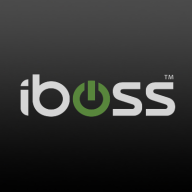


Portnox and Appgate SDP compete in network security, focusing on access control and security management. While Portnox excels in pricing and customer support, Appgate SDP is more robust in functionality and features.
Features: Portnox offers robust network visibility, endpoint compliance, and seamless integration with existing systems. Appgate SDP provides a software-defined perimeter, zero-trust network access, and micro-segmentation, enhancing security protocols in complex environments.
Room for Improvement: Portnox could benefit from an expanded feature set to match the complexity of modern network demands and improve scalability. Appgate SDP needs to streamline deployment and simplify its user interface for easier adoption and management.
Ease of Deployment and Customer Service: Portnox offers an intuitive deployment process with highly regarded customer support, enabling fast implementation. Appgate SDP requires more setup time due to its sophisticated deployment model, but it offers a tailored solution for complex structures.
Pricing and ROI: Portnox is appealing to cost-conscious organizations with its cost-effective setup and favorable ROI. Appgate SDP, although costlier initially, promises substantial long-term value with its advanced security features.


| Company Size | Count |
|---|---|
| Small Business | 6 |
| Midsize Enterprise | 6 |
| Large Enterprise | 5 |
| Company Size | Count |
|---|---|
| Small Business | 4 |
| Midsize Enterprise | 1 |
| Large Enterprise | 3 |
| Company Size | Count |
|---|---|
| Small Business | 12 |
| Midsize Enterprise | 5 |
| Large Enterprise | 7 |
Iboss offers a comprehensive cloud-based security platform valued for its scalability and autonomous features, ensuring robust security with easy deployment and management capabilities.
Renowned for its robust security architecture, Iboss integrates seamlessly within diverse networks, delivering efficient granular filtering and advanced content categorization. Its single pane of glass console provides ease of management, allowing rapid scalability suitable for rapidly deploying environments. Operates in BYOD setups due to inline filtering without device installation. Integration with cloud-based applications enhances user control, and features like SASE, SSL inspection, and ChatGPT risk protection stand as highlights. Despite its strengths, users have pointed out areas for enhancement like direct navigation in reports, SSL decryption, and better cloud integration while having room to improve data loss prevention.
What are the most important features of Iboss?The usage of Iboss spans educational institutions, specifically K-12, to enforce internet policies, protect data, and support remote work environments. It provides web filtering and security frameworks to ensure safe browsing. Its platform-as-a-service model offers flexibility for both cloud-based and on-premises requirements, integrating seamlessly to deliver enhanced security features suitable for various deployment needs including zero trust, CASB, and network security for work-from-home setups.
Appgate SDP is a network access control tool for local and remote access, multifactor authentication, and micro-segmentation. It is a flexible, robust, and configurable tool with good documentation, interface improvements, and ease of deployment.
It helps organizations prevent lateral movement across networks and servers and provides a more granular access control structure than traditional VPNs. Appgate SDP's valuable features include the ability to hide servers, good support, stability, scalability, and stopping lateral movement. It is currently being used as the main VPN solution for many companies.
Portnox provides advanced network visibility and proactive security without complexity, ensuring easy setup and scalability. Its agentless nature and intuitive design enable seamless device management and system integration, promoting efficient network operations and endpoint security.
Portnox is known for offering comprehensive network access control, providing firms with vital tools for managing authentication and securing endpoint devices. It's praised for ease of use in integrating with systems such as RADIUS servers and offering detailed analytical capabilities to ensure compliance and control unauthorized access. While users appreciate the intuitive interface and device management, improvements have been suggested in the areas of better GUI, integration with firewalls, and enhanced configuration methods. Portnox aids in handling dynamic VLAN assignments and securing access in both wired and wireless networks, proving particularly valuable for on-premises and remote environments.
What are the key features of Portnox?In industries where network security is paramount, such as finance and healthcare, Portnox is implemented to fortify access control and manage endpoint connections effectively. Its ability to secure both on-premises and remote environments makes it a versatile choice across sectors that require stringent access management, particularly where unauthorized device connections pose significant risks.
We monitor all ZTNA reviews to prevent fraudulent reviews and keep review quality high. We do not post reviews by company employees or direct competitors. We validate each review for authenticity via cross-reference with LinkedIn, and personal follow-up with the reviewer when necessary.